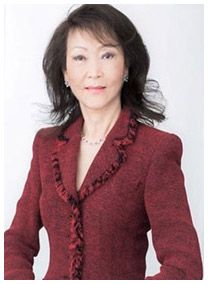Questions
Need to know more? Send us your questions and we'll get you an answer.
Need to know more? Send us your questions and we'll get you an answer.
All virtual class sessions are recorded for review.
Module 2 will focus on production defects associated with bare PCB, PCB fabrication, and components – causes, remedies, and preventive measures. In this 4-hour course, you will learn and be updated on the following topics:
ASSIGNMENT: Participants to bring further questions and issues for discussion.
This course is ideal for professionals involved in or interested in solving and preventing production problems. This includes designers, quality assurance specialists, manufacturing and reliability professionals, researchers, managers, and business decision-makers.
IPC offers different instructional modalities to suit participants with different needs and preferences. This program is only available in the following modality:
Online-instructor-led: Participants go online to meet with an IPC-certified industry expert at a fixed time twice per week for the duration of the course. Class sessions are usually 1.5 to 2 hours. Participants can also access a video recording of each class session on their IPC EDGE course dashboard.

An International Hall of Famer of Women in Technogy, Dr. Hwang brings deep knowledge and comprehensive experience to this course through both hands-on and advisory capacities. She has provided solutions to the most challenging issues in production yield and high reliability products, covering commercial and military applications. She is author of seven internationally-used textbooks and 675+ publications; a featured speaker in innumerable international/national events; has received numerous honors/ awards; on Board of NYSE Fortune 500 companies and on various civic, government and university boards and committees (e.g., DoD - Globalization Committee, DoD - Forecasting Future Disruptive Technologies Committee; National Materials & Manufacturing Board; Board of Army Science and Technology; and NIST Technical Assessment Board). She is Chair of AI Committee of National Academies; Chair of National Laboratory Assessment Board; Chair of Assessment Board of Army Research Laboratory; Chair of Assessment Board of Army Engineering Centers; external panel of National AI Institute of NSF. Her formal education includes Harvard Business School Executive Program; four academic degrees in Metallurgical Engineering and Materials Science, Physical Chemistry, Organic Chemistry, and liquid Crystal Science (Ph.D. M.S., M.S., B.S.). She has held senior executive positions with Lockheed Martin Corp. and CEO of International Electronic Materials Corp., among others. She is also an invited distinguished adj. Professor of Engineering School of Case Western Reserve University and serves on the University’s Board of Trustees. Further Info: www.JennieHwang.com